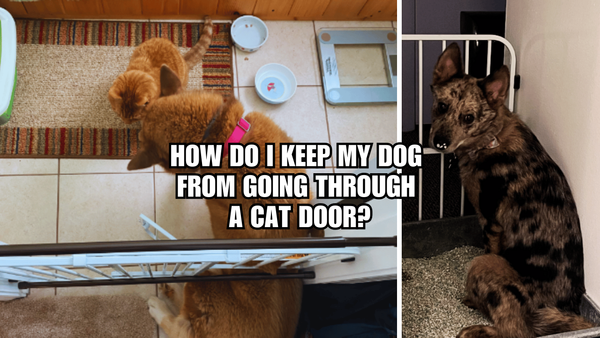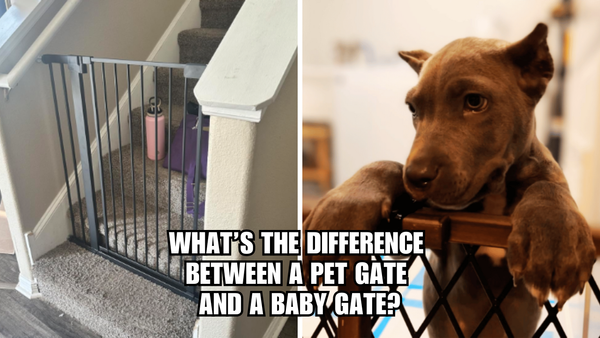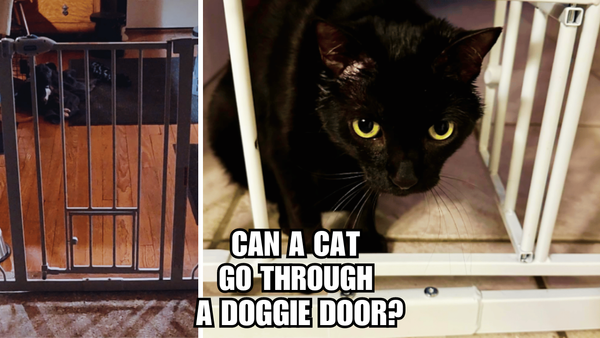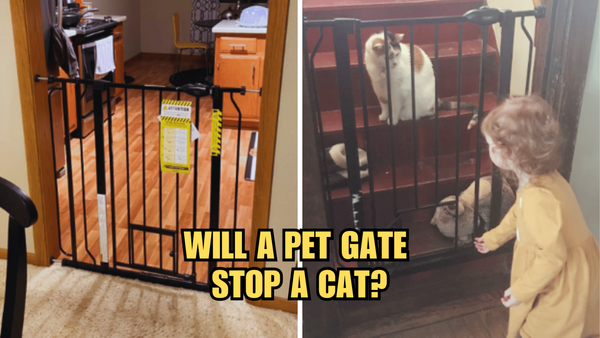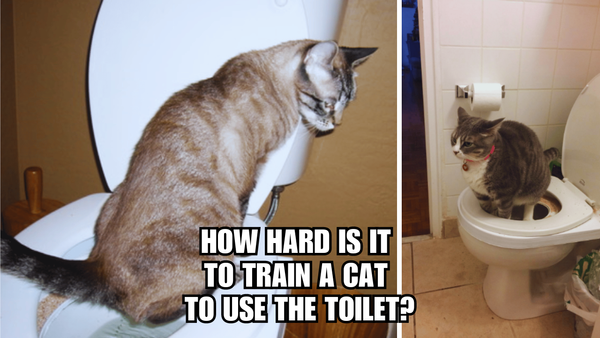Key Takeaways:
- Understanding why cats may eat toilet paper and the potential risks involved.
- Recognizing the signs of a possible intestinal blockage and when to seek veterinary help.
- Tips for preventing your cat from eating toilet paper and other non-food items.
Cats are curious creatures with a penchant for exploring and playing with objects around the house, including toilet paper. As a cat owner, you might have witnessed your kitty unrolling toilet paper or even chewing on it. But can cats pass toilet paper if they eat it? This article delves into the reasons behind this behavior, the potential health risks, and how to prevent your feline friend from eating paper products.
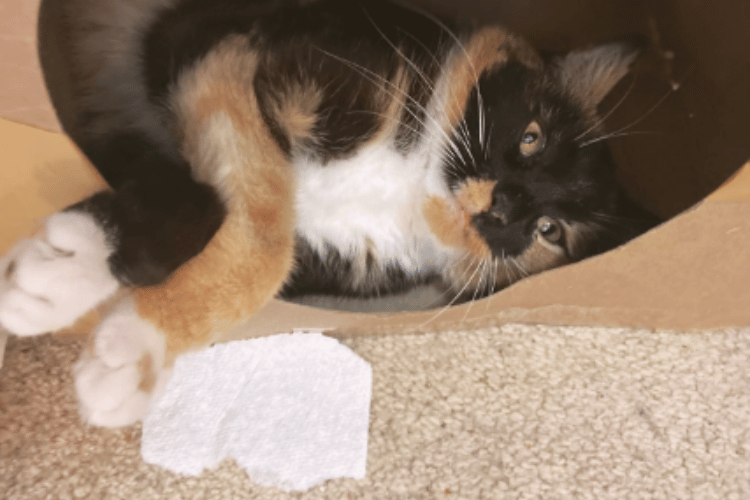
Why Do Cats Eat Toilet Paper?
Cats love to engage in interactive play, and a toilet paper roll presents an irresistible combination of texture, movement, and fun. Many cats are attracted to the way toilet paper unrolls and the sound it makes, which can mimic the rustling of leaves or the movement of prey. Additionally, some cats may eat non-food items like toilet paper due to a condition called pica, which can be caused by nutritional deficiency or boredom.
The Risks of Eating Toilet Paper
While it might seem cute or funny when cats play with toilet paper, eating large amounts can lead to health problems. Toilet paper can form a foreign body in a cat's digestive tract, leading to an intestinal blockage. This is a serious concern that can cause vomiting, lack of appetite, and even be life-threatening if not treated promptly by a veterinarian.
Signs Your Cat Ate Toilet Paper
If you suspect your cat ate toilet paper, look for signs such as vomiting, lethargy, or changes in bathroom habits. A cat's litter box can provide clues; if you notice a decrease in fecal output or if the feces contain paper, it's time for a vet visit. Early detection is crucial in preventing more severe health issues.
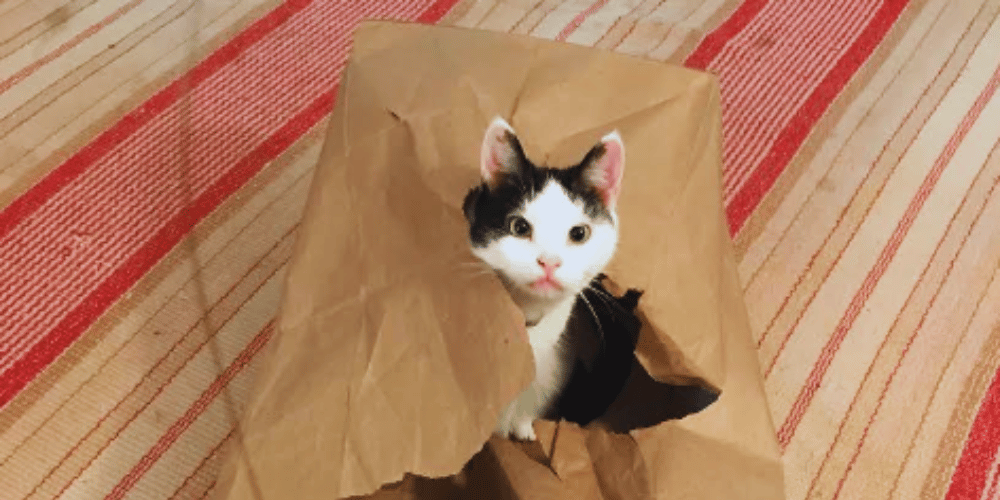
When to Contact Your Veterinarian
Any change in behavior or routine can be a sign of distress in cats. If your kitty is eating paper frequently or showing signs of discomfort, it's essential to consult with a professional in veterinary medicine. They can perform a thorough examination and determine if there's an underlying health issue or if your cat has developed an intestinal blockage.
Preventing Your Cat from Eating Toilet Paper
To prevent your cat from eating toilet paper, keep the bathroom door shut or the toilet paper out of reach. Providing plenty of cat toys and engaging in interactive play can redirect your cat's attention from toilet paper to more appropriate items. Ensuring your cat's environment is enriched with stimulating activities can help alleviate boredom and reduce the urge to chew on non-food items.
Alternatives to Toilet Paper for Play
Instead of toilet paper, offer your cat toys that are safe and designed to hold a cat's attention. Many cats enjoy toys that mimic the hunt, such as feathers on a string or small, motorized mice. These alternatives can satisfy your cat's natural instincts without the risk of them eating something they shouldn't.
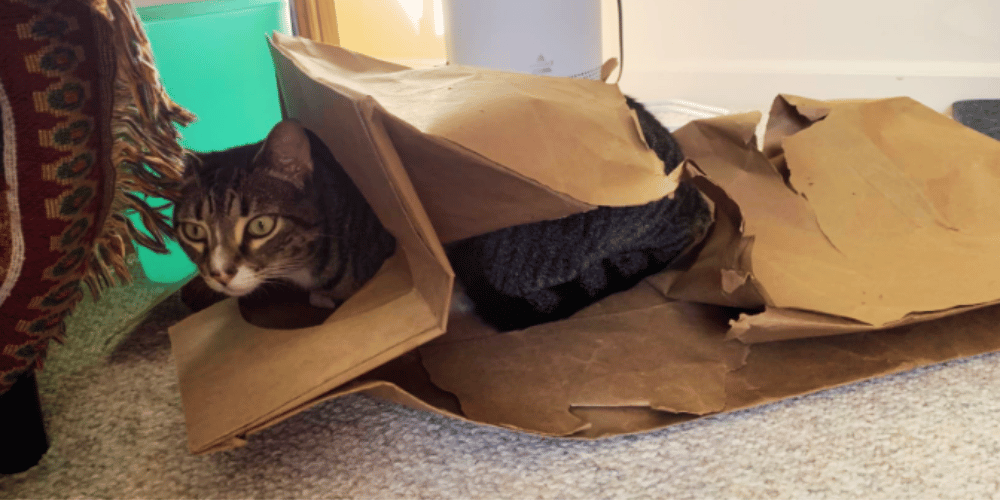
Understanding Pica in Cats
Pica is a condition where cats eat non-food items such as plastic, cardboard, or paper. It can stem from various causes, including nutritional deficiency, stress, or even genetic predisposition. If your cat is showing signs of pica, a thorough evaluation by a veterinarian is necessary to address the underlying cause.
How Cats' Curiosity Leads to Eating Paper
Cats are notorious for their curiosity, which often leads them to explore and interact with various objects around the house. This curiosity can sometimes cause them to eat paper, including toilet paper, which might seem like a harmless act but can lead to health issues. When a cat's attention is captured by the fluttering sound of paper, they may begin to paw at it, tear it with their teeth, or even eat it. This behavior is not limited to felines; dogs and other animals can exhibit similar tendencies when bored or in search of stimulation.
While it might be amusing to watch your cat play with a roll of toilet paper, it's important to be vigilant. If your cat starts to eat non-food items like paper, it could be a sign of pica, a condition that prompts animals to eat things that aren't food. Keeping paper out of reach, providing plenty of toys, and engaging in regular playtime can help redirect your cat's attention from paper to more appropriate objects. Always keep an eye out for any changes in your cat's behavior, and consult with a veterinarian if you notice your cat eating paper frequently.
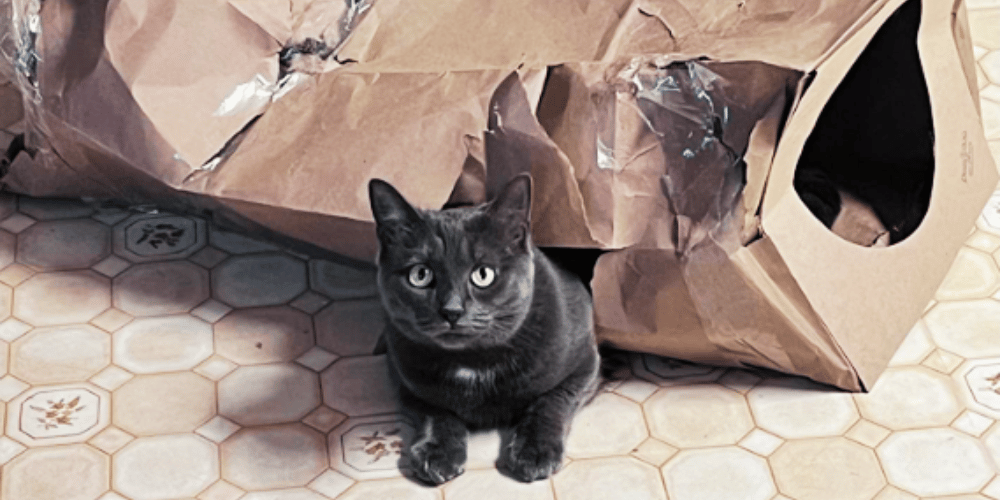
The Impact of Ingested Paper on a Cat's Digestive System
When a cat ingests paper, it can lead to several digestive issues. Paper, especially if it has ink on it, can be difficult for a cat's digestive system to break down. This can result in gastrointestinal blockages, which are serious and can even be life-threatening.
Symptoms of a blockage include vomiting, a lack of appetite, lethargy, and an inability to pass stool. If you suspect your cat has eaten a significant amount of paper, it's crucial to contact your veterinarian immediately.
In addition to blockages, the ingestion of paper can also cause irritation to the cat's stomach and intestines. Cats that eat paper may experience discomfort, and in some cases, the paper can stick to their paws or fur, leading to further ingestion as they attempt to clean themselves.
To prevent these issues, keep paper products securely stored away and maintain a clean floor to reduce the risk of your cat eating paper scraps. Regularly cleaning your cat's litter box can also discourage them from finding alternative materials to interact with, ensuring they stick to their designated cat litter.
Addressing Nutritional Deficiencies
If a nutritional deficiency is causing your cat to eat toilet paper, your veterinarian may recommend changes to your cat's diet. High-quality cat food that meets all of your kitty's dietary needs can help curb the desire to eat non-food items. Supplements may also be suggested if a specific deficiency is identified.
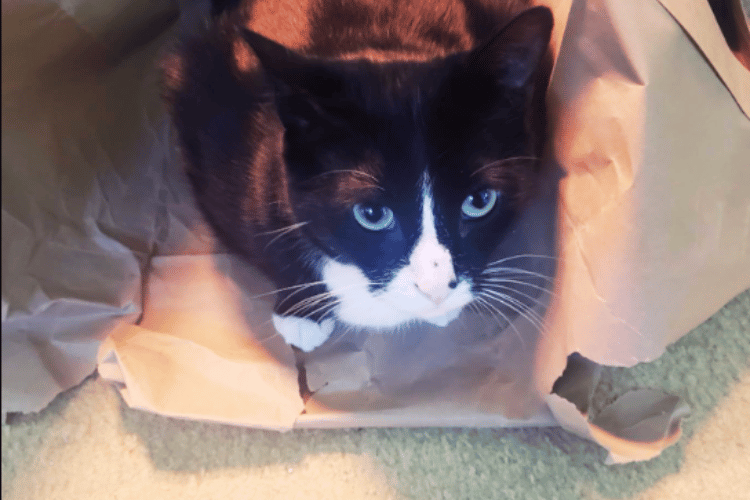
The Role of Enrichment in Preventing Pica
Enrichment plays a vital role in a cat's life, providing mental and physical stimulation. By enriching your cat's environment with various forms of entertainment, such as climbing structures, puzzle feeders, and regular playtime, you can help prevent boredom and reduce the likelihood of pica behaviors.
Training Your Cat to Avoid Toilet Paper
Training your cat to stay away from toilet paper involves consistency and positive reinforcement. Use commands like "no" when they approach the roll and reward them with treats or praise when they obey. Redirecting their attention to appropriate toys can also teach them that toilet paper is not a toy.
The Curiosity of Kittens and Toilet Paper
Kittens are especially curious and may find the smell and texture of toilet paper intriguing. It's essential to kitten-proof your house by keeping toilet paper and other potentially harmful items out of reach. Introducing kittens to a variety of appropriate cat toys early on can help prevent unwanted chewing habits.
The Dangers of Other Household Items
Toilet paper isn't the only household item that can pose a risk to cats. Items like plastic bags, rubber bands, and string can also be dangerous if ingested. Always keep these items stored away and monitor your cat's playtime to ensure they're not chewing on or swallowing anything they shouldn't.
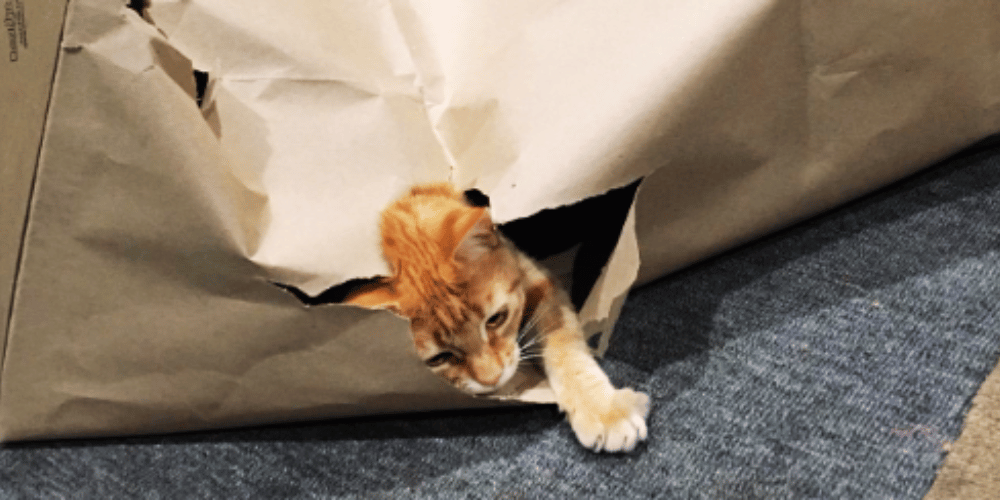
Case Study: A Close Call with Toilet Paper
An example of the dangers of eating toilet paper is the case of Sheba, a two-year-old tabby who developed an intestinal blockage after eating a significant amount of toilet paper. Her owners noticed she was vomiting and had lost her appetite. A quick trip to the vet and an X-ray revealed the blockage. Fortunately, with prompt veterinary care, Sheba underwent surgery and made a full recovery.
The Importance of Observation
As a cat owner, it's crucial to observe your cat's behavior and habits closely. Noticing changes in their routine or interest in eating non-food items can be the first step in preventing health problems. Regular vet visits and keeping an eye on your cat's interaction with household items can help ensure their safety and well-being.
Summary
Cats may be drawn to toilet paper due to its playful appeal or as a result of pica, a condition that can be caused by nutritional deficiencies or boredom. Eating toilet paper can lead to intestinal blockage, a serious health concern that requires immediate veterinary attention. To prevent your cat from eating toilet paper, keep it out of reach, provide plenty of appropriate toys, and ensure their environment is enriched with stimulating activities. Regular observation and prompt action are key to keeping your feline friend healthy and safe.
FAQ Section
Q: What should I do if my cat eats toilet paper? A: If you notice your cat eating toilet paper, remove the paper and monitor your cat for any signs of distress, such as vomiting or changes in bathroom habits. If you observe any concerning symptoms, contact your veterinarian immediately.
Q: Can eating toilet paper cause health problems for my cat? A: Yes, eating toilet paper can lead to an intestinal blockage, which is a serious health issue. If you suspect your cat has eaten a large amount of toilet paper, seek veterinary assistance as soon as possible.
Q: How can I prevent my cat from eating toilet paper? A: Keep the bathroom door shut or the toilet paper out of your cat's reach. Provide your cat with plenty of toys and engage in interactive play to keep their attention away from toilet paper. Address any potential underlying issues, such as nutritional deficiencies or boredom, to reduce the likelihood of pica behaviors.
Thank you for visiting LegitLists we hope this helps you make a legitimate choice!


